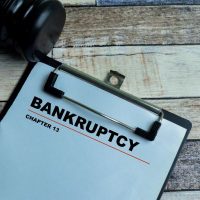What is the Main Problem in Chapter 13?

Many people don’t know what they’re getting into when they file Chapter 13. Filing a voluntary petition is just the beginning. Chapter 13 is an exhaustive legal process that often includes adversarial actions, disputes with the trustee (person who manages the bankruptcy for the judge), and especially in a Chapter 13, modification and dismissal actions.
Only a Chicago bankruptcy lawyer should handle this complex legal process. The Bankruptcy Code offers distressed debtors a fresh start. A Chicago bankruptcy lawyer maximizes this fresh start by making the law work for debtors, instead of against them. This process includes some obscure legal loopholes that DIY filers don’t know about and cannot cash in on.
Adverse Actions
Section 362 bypass motions and objections to large purchases are the most common adverse action problems in a Chapter 13.
Bankruptcy Code Section 362 includes the Automatic Stay, one of the key aspects of consumer bankruptcy. The Automatic Stay stops most creditor adverse actions, including:
- Foreclosure,
- Wage garnishment,
- Repossession, and
- Creditor lawsuits.
Unsurprisingly, creditors don’t like the Automatic Stay. If Jim is behind on his mortgage payments, the bank wants the money now, not later. So, creditors often ask the judge for special permission to bypass the Stay.
Usually, the amount of delinquency is irrelevant. Judges only grant these motions if the debtor threatened the collateral (e.g. Jim threatens to burn down the house on social media).
Generally, the Automatic Stay remains in force throughout the entire protected repayment period, which usually lasts five years. The world keeps turning during these sixty months. Almost inevitably, debtors must make large purchases, such as motor vehicles.
Typically, creditors object to these purchases on the grounds that debtors should repay their debts, not buy more stuff.
A Chicago bankruptcy lawyer advocates for debtors in these situations and convinces judges that vehicle purchase and other such requests are the bare necessities.
Trustee Disputes
Turnover motions are closely related to purchase objections. Most property is exempt from seizure during bankruptcy, such as:
- Primary residence,
- Motor vehicle,
- Personal property,
- Retirement accounts, and
- Government benefits.
If a debtor has nonexempt cash, like money in a savings account or a financial windfall, like a tax return, the trustee often tries to take it.
The mootness rule usually applies in such situations. Assume Jim has $3,000 in a savings account. The trustee files a motion to force Jim to “turn over” the nonexempt property. By the time the judge hears the motion, Jim has spent the money on living expenses.
At that point, it doesn’t matter who owned the money, because the money is gone. Usually, judges cannot rule on moot or theoretical matters.
Dismissal and Modification
These matters are especially common in Chapter 13 bankruptcies, and in some cases, they can be a big problem.
Dismissals usually relate to the debtor’s failure to make monthly debt consolidation payments. Depending on the amount of allowed claims (usually secured debt arrearage plus some priority unsecured debt arrearage, such as past-due student loans), the monthly debt consolidation payment could be as high as a rent or mortgage payment.
Many judges have an itchy trigger finger and will dismiss a bankruptcy if the debtor is one day late with one monthly payment.
If the payment is an ongoing issue, a Chicago bankruptcy lawyer usually files a motion to convert the Chapter 13 to a Chapter 7. This conversion ends the need for monthly payments and also shortens the path to the aforementioned fresh start.
Count on a Savvy Cook County Lawyer
No matter what kind of financial problem you are having, there’s a way out. For a free consultation with an experienced bankruptcy attorney in Chicago, contact the Bentz Holguin Law Firm, LLC. Virtual and after-hours visits are available.
Source:
uscourts.gov/court-programs/bankruptcy/bankruptcy-basics/chapter-13-bankruptcy-basics


